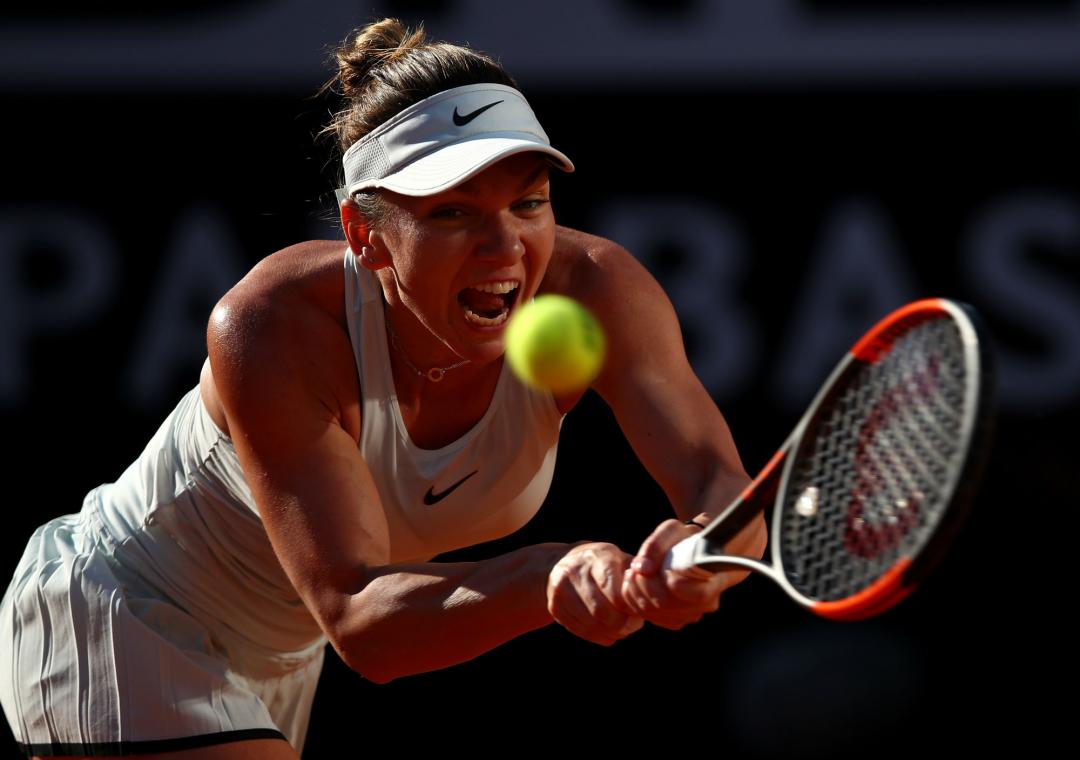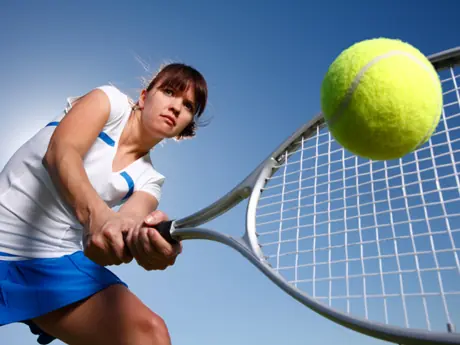Although some pro players like Roger Federer may disagree, two-handed backhand strokes are often better than single-handed ones. They can turn a “weak” side into a strength as it is easier to generate topspin with a two-hander and it is also better in the long-term for your body (to balance things out by involving the left arm.)
Novak Djokovic, An Ace Tennis Player Trying Out Two-Handed BackhandWe all learn to use two-handed backhand initially because it is easier to learn. But if you want to master it, it requires the same amount of practice and repetition like any other stroke.
Today we will be sharing a few tips to improve the two-handed backhand.
We are going to categorize those tips in four sets, similar to what we did in our last post about the forehand tips:
-
Grip
-
The Turn
-
Contact
-
Follow Through
Let’s dive into further explanations of the above-mentioned points:
-
Grip
Your dominant hand should be gripping the racket on the bottom end, whereas your non-dominant hand is placed right above it. Your grip for your non-dominant hand should be similar to the forehand grip. It will better if you keep the grip of non-dominant hand same as your regular forehand grip.
Keep your hands relaxed, it will help you to avoid the unnecessary stress formation, also to make a better eye contact. On the other hand, stiff arms will make moving the racket a hard and exhausting process.
-
The Turn
Once you have noticed the ball is coming to your backhand, spread your feet from each other (keep distance according to your comfort) and execute a unit body turn, as soon as possible, this will give you sufficient time to generate the topspin. Just make sure that your shoulders and your racket are turning together. (Obviously, unless it’s a wide ball.)
Adding power to your backhand can be a frustrating thing. But, there’s an easy solution for it: weight distribution. Shift the weight to the back foot, this will allow you to get more power without swinging harder because your body weight is now behind the ball.
-
Contact
Much like the forehand make sure you have a long contact point so even if you meet the ball a bit early or late it will still be near your target.
While making contact with the ball, as we have told in previous tips, make sure to keep the racket in front of you. And once the ball is out in front of you, begin the forward swing, placing your racket-head below the ball, then transfer your weight from the rear foot forward into the ball and into the court, this will get you the most accurate outcome.
-
Follow Through
After hitting the ball, your arms will swing forward, accelerating your body to move towards the net, as coaches advice, STAY WITH THE SHOT!
Andy Roddick Maintaining Contact After Hitting The Ball And Staying With The ShotIf you pull off the shot too soon, you will summon a tremendous stress on the shoulder, elbow, and wrist.
So, let the body slow down naturally, all you have to do now is to maintain the balance. If you complete a follow through without losing your balance you’ll get sufficient time to prepare for the next shot.
That’s all for today. We will come back to SERVE you more tips, with new posts. Until then, ENJOY PLAYING TENNIS!
Has the article motivated you enough to play Tennis? Then, book your court straightaway!








0 Comments